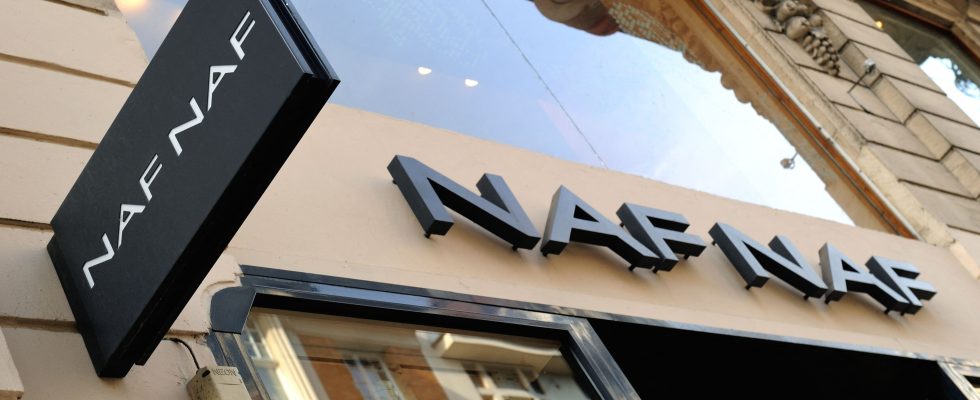It adds to the sad list of struggling ready-to-wear companies: the Naf Naf brand was placed in receivership this Wednesday, September 6, in debt in particular due to unpaid rents during the Covid crisis. “We will do everything to get Naf Naf back on its feet in the coming year,” promised SY leader Selçuk Yilmaz, owner of Naf Naf, in an interview with AFP. “We (providers) must not confuse us with Camaïeu and all these other companies which have failed to recover from the crisis in the ‘retail’ sector”, he warned.
Positioned in the mid-range, Naf Naf is a French ready-to-wear brand, is a French brand launched in 1973 by two brothers and now owned by the Franco-Turkish group SY employs 660 people in France, owns 135 stores and posted a turnover of 141 million euros in 2022, “growing”, a spokesperson told AFP at the end of August. But it is heavily in debt, in particular due to unpaid rent since 2020, and was placed in receivership on Wednesday by the Bobigny commercial court (Seine-Saint-Denis), with an observation period of six months. “The rents have generally been paid” but the company is in negotiations with certain landlords to reassess them downwards, “especially in the shopping centers” where they are “no longer in line with the turnover”, explained the lawyer of the group Virginie Dupé, of the firm Hyest.
“There is a responsibility of the landlords because the rents in the city center are exorbitant”, also estimated Aurélie Flisar, deputy general secretary at the CFDT. In this crisis in ready-to-wear, the trade unionist fears for employees, “mainly part-time women” who feel “poor, with complicated job prospects”.
Second receivership
Naf Naf’s debts now stand at 60 million euros, according to a source familiar with the matter. The company had already been placed in receivership in May 2020 and taken over by the Franco-Turkish group SY International, which is still its shareholder and which employs 1,500 people directly worldwide, and which had already acquired the sign Sinéquanone in 2019. It had begun to restructure and cut 35 positions in June 2023 as part of a PSE, recalled Angélique Idali, secretary of the CSE and CFDT union delegate, 87% majority at Naf Naf. “We know that there will be store closures, a priori about twenty, and a new PSE at headquarters, which will move,” she fears. “This is the second receivership in three years, so there is a lot of concern, distrust, fear”, according to the trade unionist who hopes that “social damage as much as possible” will be avoided.
In addition to the Covid-19 crisis, the company has been hard hit in recent years by “the repeated demonstrations by yellow vests and then against pension reform”, “the war in Ukraine which caused an inflationary shock and the surge in price of energy, raw materials and transport” as well as “foreign competition whose questionable means of production offer it unfair competitiveness”.
The ready-to-wear sector in France has been shaken for several months by a violent crisis. Camaïeu, Kookaï, Burton of London, Gap France, André, San Marina, Kaporal, Don’t Call Me Jennyfer, Du Pareil au Même and Sergent Major… These brands well known to French consumers suffered from an explosive cocktail: pandemic, inflation, rising costs of energy, raw materials, rents and wages or even competition from second-hand and fast fashion. It was fatal for certain brands, which were liquidated, such as Camaïeu in September 2022, whose dismissal of 2,100 employees made a strong impression. Others are in receivership, such as Kookaï or Burton of London.
Without reaching that point, still others are cutting back, cutting staff and closing stores, such as Princesse Tam Tam, Comptoir des Cotonniers (Fast Retailing group) or Pimkie.
